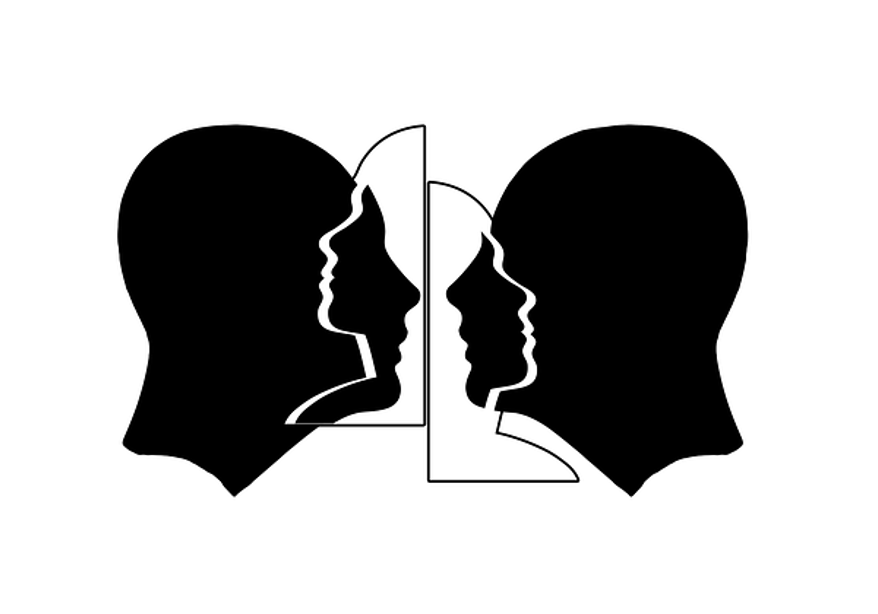You know what I think gets a really bad rap, especially in the workplace? Sensitivity. Today, the word Sensitive has a feminine connotation. Sensitivity is depicted as a less desirable and hidden trait in a male-dominated workforce. The act of being sensitive or possessing sensitivity has been made synonymous with weakened states.
Before you decide if you agree with this connotation of the words sensitive and sensitivity, let’s dive into its history. According to the online etymology dictionary, sensitivity comes from the Medieval Latin root sensitivus circa 500-1500 CE. Sensitivus directly translates to “capable of sensation.” In the 13th century, sensitif (from sensitive) translated to capable of feeling and sensation. In the 14th century, sensitivity stemmed from a trait possessed by the internal body, rendering it capable of receiving messages from the external world.
Fast forward to the age of authenticity (1590 CE), where, commensurate with the times, sensitivity takes on a new active role as a verb to “perceive (an object) by the senses.” Sensitivity during this led to reflective pieces of consciousness, combining mind and body perceptions through the 1680s. The noun sense means being inwardly conscious of one’s state or condition. Slide into the 18th century and sensitivity directly correlates with emotional consciousness, especially the “capacity for higher feelings or refined emotion.”
In Jane Austen's Sense and Sensibility, it was not until the 19th century that sensitivity and touchiness appeared as pseudo-synonyms to describe emotional states of overreaction or more feminine perspectives. Through this, we understand at no point during the evolution of the way we have defined what it means to be sensitive or have sensitivity has the word or its various conjugates considered negative or a feminine trait. Instead, the term connotes something to aspire towards, for most of the time, it appears in language.
Let your
Intelligence begin to rule
Whenever you sit with others.
Using this same idea:
Leave all your cocked guns in a field
Far from us,
One of those damn things
Might go
Off.
Hafiz, “This Sane Idea”
At this point, sensitivity seems to be a solid physical and emotional state to pursue in the mission of self-improvement. This is particularly true if we consider the antonyms to sensitivity and its root words, which are, according to Merriam-Webster: unresponsive, impervious, insensitive, numb, dulled, dead, inaccurate, and imperceptive. If being sensitive means being in touch with your surroundings, your internal state, and the calibration between them, why is sensitivity treated negatively? What if the very expression of sensitivity in the workplace might be the missing connection link between you and your team?
How often have you sat in on meetings that felt like the published agenda didn't match the content, which avoided the REAL issue for the duration? How often have you sensed a barrier or impedance to progress within your relationships, but the topic feels off-limits to discuss? Like vulnerability, sensing, and sensitivity are fundamentally human. Being in touch with the office emotional pulse could allow you to be a more compassionate leader, attuned to the needs and subtle messages in communication.
“The opposite of sensitive is not brave. It's not brave to refuse to pay attention, to refuse to notice, to refuse to feel and know and imagine. The opposite of sensitive is insensitive, and that's no badge of honor.”
Glennon Doyle, "Untamed"
Some sources report you average 35,000 choices daily. Most of them require little-to-no, though, and many are by habit. In no way am I suggesting you tune into each of these picking up stimuli along the way; your brain would overload, and your body would exhaust from the constant input and output. Yet a smaller phenomenon is happening - there’s simply a lot more noise than there used to be. In the increasingly connected (yet disconnected) world, we have become desensitized to keep going to avoid all the stimuli and possible overload. This approach represents a slippery slope. Has the desensitization gone too far?
In 2022, The Center for Creative Leadership compiled the top ten essential leadership traits. Everyone is a “soft” skill, including empathy and self-awareness. The 2022 National Study for Change and Emotion in the Workplace found 82% of Americans accept that growth often requires feeling uncomfortable, and 80% of Americans are more motivated to adopt change when they feel genuinely heard and understood by their manager and peers. As a leader, this means working to become more aware of yourself and others, which may feel uncomfortable as you remove barriers of insensitivity. But the payoff of helping your organization navigate change by creating a safe place within yourself and a workplace for others to increase their sensitivity to the difference is worth it in spades.
Research shows that social sensitivity correlates with elevated team performance effectiveness. Creativity and innovation have more legroom in each interaction when team members are attuned to each other.
"Silence makes us nervous. So do innovation, change, and genius […] There are insights and emotions that can find you no other way than through and within silence.”
Susan Scott, "Fierce Conversations"
Based on the evolving definitions, increasing sensitivity to both your body’s feelings as well as to the stimuli barreling towards you could provide an enlightened synergistic approach. To be sensitive, then, is to be aware of your feelings within your mind, the tactile sensations of your body, and how you interact with external stimuli. As a leader, working to improve and increase your self-awareness (self-sense), as well as expressing empathy and understanding, requiring sensitivity towards others, puts you in the upper echelon of global leaders.
Most of the nearly 34,000 choices you make daily are unconscious, like those made while driving a car. Some choices (again, driving a car) require ignoring sensitivity. Did some other decisions, made without considering sensitivity, create collateral damage? As Susan Scott wrote in Fierce Conversations, “The courage to show up is both simple and daunting [...] Some safety and comfort are lost in the presence of the expression of ambition or strongly felt emotion. Perhaps, if you have become impatient with the false identity you have created for yourself, life is inviting you into much larger worlds than you have imagined. Whether you govern a country, run an organization, or participate in a committed personal relationship, your ability to effect change will increase as you become more [aware of and] responsive to your world and the individuals central to your happiness and success.”
Take a minute to ask yourself:
- When was the last time I honestly tuned into my body?
- When was the last time I allowed silence to transport the outside world to me?
- When was the last time I listened for an extended period without the purpose of reacting?
- How can I incorporate more sensitivity into how I live each day?








